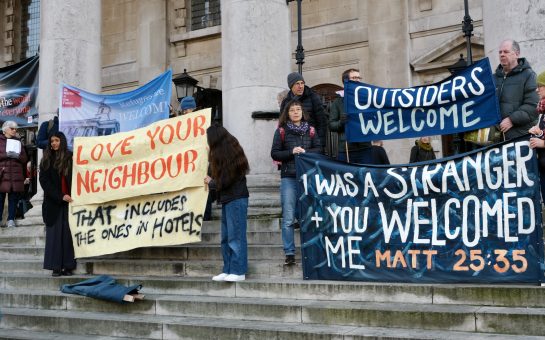Poorer London boroughs have significantly less access to childcare places, according to data from the Office for National Statistics and Ofsted.
According to the data, parents in the wealthiest two London boroughs – Hammersmith and Fulham, and Kensington and Chelsea – have more than twice as many childcare places available per 100 children as those in the poorest borough, Barking and Dagenham.
The Office for National Statistics calculated access to childcare as an equivalent number of childcare places per 100 children aged up to seven years, accessible from a neighbourhood. A higher number of places per 100 children indicates better access.
The picture in the capital reflects the nationwide experience where areas with lower levels of access to childcare generally had lower household incomes and higher levels of deprivation than other areas.
From 1 September 2024, the Labour government honoured a pledge from the previous Conservative administration to expand government-funded childcare places for some children.
Currently, all two-year-olds from working families are entitled to 15 hours of free childcare each week - and by 2025 this will expand further to offer all children aged nine months to five years from working families 30 hours of free childcare weekly.
To meet this pledge, the government intends to open more than 3,000 new nursery classes housed in spare classrooms - funded by ending tax breaks for private schools.
However, research by Frontier Economics has suggested this plan is unlikely to work and many families already face difficulties in accessing the hours they are entitled to as some nurseries are struggling to offer the free care – having to fund the free hours by raising prices for those not entitled or upping other costs.
Access to places seems unlikely to improve, as latest Ofsted statistics has shown that between 1 September 2023 and 31 August 2024 the number of providers registered with them has seen a 2% decrease.
Rhian Whitley, a parent from East London, said: “My daughter became eligible for 15 hours of funding last year - but as she only goes to nursery three days a week, our nursery pro-ratas the hours and we can only use a maximum of three free hours per day.
“We also still pay a consumables charge for the free hours, for things like heating and running costs, basically so the nursery doesn’t go under.
“The rest of the hours we need have to be paid for at an hourly rate. After we’ve brought our three hours a day up ten hours – which is what we needed to cover our working days – we are making a saving of £1 per day.
“I don’t blame the nursery at all. I get that’s what they need to do and we’re in the fortunate position where we can afford it. However, if we couldn’t, it would be a struggle to find a different nursery as they often have long waiting lists.
“You’re also always at the mercy of the provider – we could move to a cheaper nursery, but they could put their prices up at any time!”
While access to general childcare is better in wealthier London boroughs, access to Ofsted-rated good or outstanding providers does not follow this trend.
Although one-word Ofsted ratings are being scrapped in favour of report cards from September 2025, they will still remain with education providers until their next inspection.
“While this doesn’t sound far, in London traffic that journey can sometimes take half an hour and is too far to walk with two young children. However, it’s the closest ‘good’ provider to us and that was the main factor when we chose this setting.

“While it may seem ridiculous to worry about having a ‘good’ provider when our children are so young, the next rating down is ‘Requires Improvement’ then ‘Inadequate’.
“When we’re putting our young children into the care of other people, you don’t want to put them somewhere that requires improvement - you want the best possible for your children.
“You read horror stories about children who aren’t in safe situations when at nursery, so we’ve chosen to go a little bit further to try and mitigate that.
“It impacts on when we can take meetings and our working days. Luckily, we have supportive employers, but it does make me think twice about looking for a new job or seeking a promotion in case they aren’t as supportive.”
While organisations such as the Early Years Alliance and Pregnant then Screwed are campaigning for action from the government to combat poor accessibility to childcare places nationwide, with the further expansion of government-funded childcare on the horizon, parents may struggle to access the places across the capital.
Feature image credit: Image by Engin Akyurt from Pixabay





